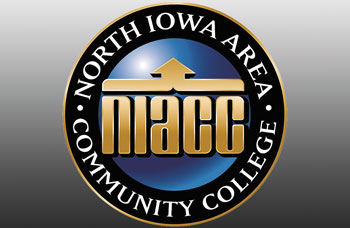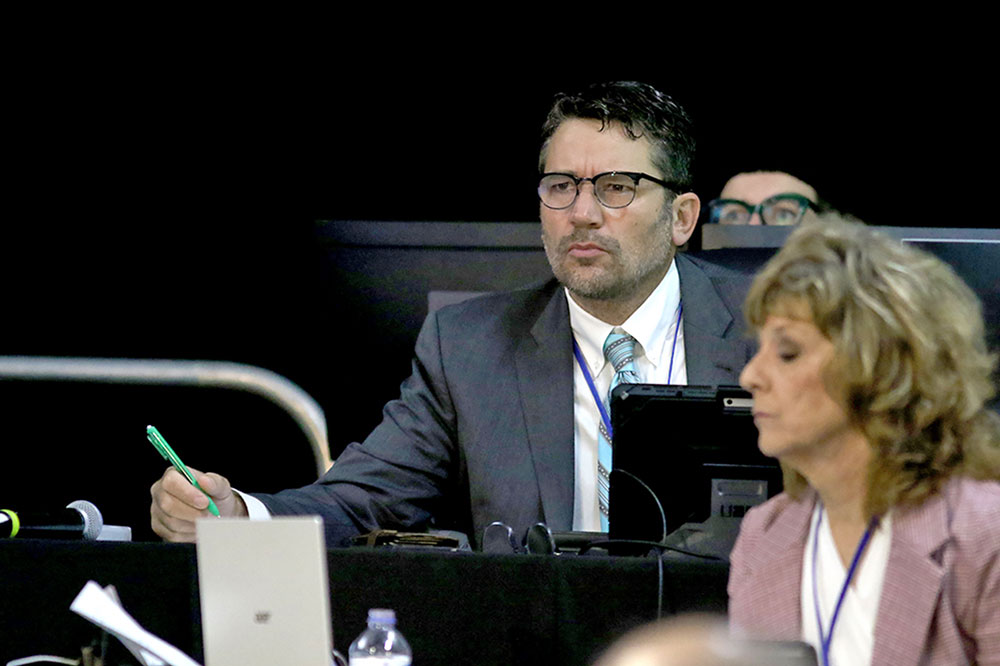Another ambulance group advises Floyd County seek an EMS tax levy

By Bob Steenson, bsteenson@charlescitypress.com
One more Floyd County board has now weighed in, recommending that county voters get to decide at an election this year whether to support a dedicated emergency medical services tax levy.
If that special levy is not approved, the possible outcome could be a cut in services, members of the group said, either in lower levels of ambulance service or cuts in other expenses like police or fire protection to pay for ambulance service.
The city and county have been considering for several years the possibility of creating a public ambulance service for the county, to replace the current AMR ambulance service if that private company would decide to no longer serve the county, or if AMR subsidy costs rise to a level higher than it would cost for a public service.
The AMR subsidy level split between the county and Charles City is $415,000 this year and it will increase each year of the next two years of a three-year contract. The Floyd County Medical Center contributed $100,000 to the cost in this first year of the contract.
At the Floyd County Ambulance Commission meeting Tuesday evening, Chair Keith Starr, the Charles City Council representative on the commission, suggested that the group not spend a lot of time trying to come up with the specific costs of putting together a public ambulance service and supporting other EMS services in the county.
“Instead of getting wrapped up in the numbers tonight, knowing everything we know now, that we move forward with the recommendation to go for the maximum levy rate and stretch that realistically, as long as we can, because even at the maximum levy amount that may not be enough,” Starr said.
Another group, the Floyd County EMS Advisory Council, will make a recommendation to the county Board of Supervisors on the timing, type, amount and duration of a possible EMS levy vote, but that group was waiting for a report from the Ambulance Commission on potential costs in order to know how much the annual levy amount should be.
Once a county goes through the procedure of declaring EMS as an “essential service,” which Floyd County did last year, it can schedule an election to let voters decide whether they support an EMS levy. The levy would need to pass by a 60% majority to take effect.
The levy can be a property tax up to 75 cents per $1,000 of total assessed valuation in the county.
The current Floyd County taxable valuation is $1.036 billion, so a 75-cent levy could potentially raise almost $777,000 annually, although the people on the various groups involved in the process say regularly that only the amount needed would be collected and the total amount possible should be considered an “up to” amount.
It is also possible to ask voters to approve an Iowa income tax surtax instead of or in addition to a property tax, but members of the groups considering the levy say there is so much uncertainty with Iowa’s income tax rates that it makes more sense to not consider that option.
The Ambulance Commission recommended to the Floyd County EMS Advisory Committee that it recommend the county supervisors call for an EMS levy vote, asking for permission to collect up to the full 75 cents per $1,000 levy, for the maximum time allowed of 15 years.
The Ambulance Commission spent some time Tuesday evening talking about the level of ambulance service the county has now through AMR.
Dawn Staudt, AMR station leader in Charles City, said currently AMR provides one advanced life support (ALS) ambulance staffed 24/7. It also has a basic life support (BLS) ambulance on standby, and can sometimes pull together a third crew when needed.
BLS, by emergency medical technicians (EMTs), can provide care such as CPR, splinting, blood loss control, managing shock and basic airway management such as head positioning. It cannot perform invasive procedures.
ALS provides advanced care, by paramedics, and includes cardiac monitoring, intravenous therapy, advanced airway management including intubation, and administration of certain medications, plus the care provided by BLS.
The members of the group agreed that the goal is to maintain ALS service.
“If I were calling for myself or for the sheriff for one of our officers or deputies being shot or having a heart attack, I would want an ALS coming,” said Charles City Police Chief Hugh Anderson. “And the same with any of my friends, if they’re having a heart attack, or the public. So personally, no, I wouldn’t want to see it go less.”
Charles City Administrator Steve Diers pointed out that reducing the level of service could end up costing more, because transfers between medical facilities usually have to be done with paramedics and ALS service. Transfers are one of the important revenue sources for an ambulance service, he said.
Anderson said voters need to understand that if an EMS levy doesn’t pass, Floyd County could be left with essentially a volunteer ambulance service.
“I’m not saying that volunteers aren’t professionals, but it’s not their full-time job,” he said. “They’re also working other jobs, so now you have that lead time where you have to get them to the scene.”
Another aspect of a lower level service would be that persons who are transported to the Floyd County Medical Center but who then need a higher level of care might have to wait for an ALS ambulance from some other community to drive to Charles City to take the patient to that higher level facility.
That extra time without the right level of care “could be the difference between them keeping an arm or leg or their life or their children’s life,” Anderson said.
The members of the Ambulance Commission are a Charles City Council member, a representative from the Board of Supervisors, the Floyd County Medical Center administrator and another member appointed by the FCMC Board of Trustees, as well as the county sheriff, Charles City police chief and Charles City fire chief. The local ambulance team leader is an ex officio (non-voting) member.








Social Share